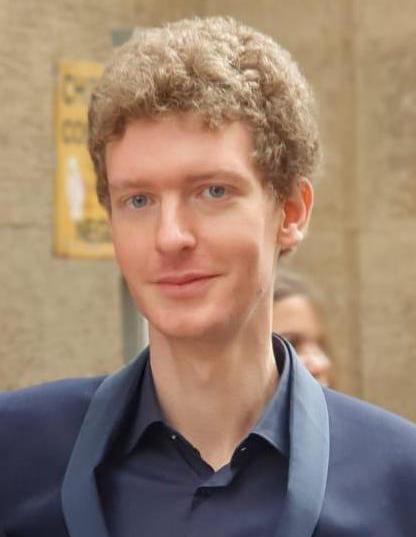Studying at the University of Verona
Here you can find information on the organisational aspects of the Programme, lecture timetables, learning activities and useful contact details for your time at the University, from enrolment to graduation.
Academic calendar
The academic calendar shows the deadlines and scheduled events that are relevant to students, teaching and technical-administrative staff of the University. Public holidays and University closures are also indicated. The academic year normally begins on 1 October each year and ends on 30 September of the following year.
Course calendar
The Academic Calendar sets out the degree programme lecture and exam timetables, as well as the relevant university closure dates..
| Period | From | To |
|---|---|---|
| I semestre | Oct 1, 2024 | Jan 31, 2025 |
| II semestre | Mar 3, 2025 | Jun 13, 2025 |
Exam calendar
Exam dates and rounds are managed by the relevant Science and Engineering Teaching and Student Services Unit.
To view all the exam sessions available, please use the Exam dashboard on ESSE3.
If you forgot your login details or have problems logging in, please contact the relevant IT HelpDesk, or check the login details recovery web page.
Academic staff
 mariano.ceccato@univr.it
mariano.ceccato@univr.it
 mila.dallapreda@univr.it
mila.dallapreda@univr.it
 stefano.gatti@univr.it
stefano.gatti@univr.it
 daniela.pianezzi@univr.it
daniela.pianezzi@univr.it
 rosamaria.vadala@univr.it
rosamaria.vadala@univr.it
Study Plan
The Study Plan includes all modules, teaching and learning activities that each student will need to undertake during their time at the University.
Please select your Study Plan based on your enrollment year.
1° Year
| Modules | Credits | TAF | SSD |
|---|
2° Year It will be activated in the A.Y. 2025/2026
| Modules | Credits | TAF | SSD |
|---|
| Modules | Credits | TAF | SSD |
|---|
| Modules | Credits | TAF | SSD |
|---|
| Modules | Credits | TAF | SSD |
|---|
1 module among the following2 modules among the following1 module among the following (A.A. 2024/2025 Network science and econophysics not activated)1 module among the following2 modules among the followingLegend | Type of training activity (TTA)
TAF (Type of Educational Activity) All courses and activities are classified into different types of educational activities, indicated by a letter.
Cybercrime (2024/2025)
Teaching code
4S009084
Credits
6
Language
English
Also offered in courses:
- Cybercrime - Teoria 1 of the course Master's degree in Artificial intelligence
- Cybercrime - Teoria 2 of the course Master's degree in Artificial intelligence
- Cybercrime - Teoria 3 of the course Master's degree in Artificial intelligence
- Cybercrime of the course Master's degree in Data Science
- Cybercrime - Teoria 1 of the course Master's degree in Data Science
- Cybercrime - Teoria 2 of the course Master's degree in Data Science
- Cybercrime - Teoria 3 of the course Master's degree in Data Science
Scientific Disciplinary Sector (SSD)
IUS/17 - CRIMINAL LAW
Courses Single
Authorized
The teaching is organized as follows:
Teoria 3
Credits
2
Period
II semestre
Academic staff
Not yet assigned
Teoria 2
Credits
2
Period
II semestre
Academic staff
Not yet assigned
Teoria 1
Learning objectives
The course will provide the conceptual, methodological and cultural basis to analyze and study the “ICTs Criminal Law”, cybercrimes and computer-related crimes and the “technological investigations”, developing the capacity in using correct and specific language and discourse. Students will gain, following this method and in subiecta materia, legal and technical expertise both on substantive criminal law and procedure criminal law levels. The course will study the new illegal phenomena related to the use of the new technologies and Internet, also through social networks (for example: online defamation, frauds - connected to online banking, phishing, identity theft - privacy violation, copyright infringement, child pornography, child grooming, cyberterrorism, cyber laundering). The course will analyze, taking into consideration real cases, the applicable criminal law, in particular for illegal activities down to the new concept of “cybercrime”, which is a transnational and global crime. For this reason it’s necessary to analyze the most important international and European legal sources (Cybercrime Convention and Lanzarote Convention of the Council of Europe, European directives on: attack against information systems, child pornography, intellectual property, e-commerce and privacy) Special attention will be given to the Internet Service Providers criminal liability, subject of recent European Court of Justice and Italian Corte di Cassazione judgements (cases Google, Netlog etc.). In this area particular attention will be paid to the need to regulate the collection of data and the digital evidence, which are becoming increasingly important for the detection and prosecution of every criminal offence, not only “cybercrime”.
Learning assessment procedures
Per superare l'esame, gli studenti devono dimostrare di:
- aver compreso i principi fondamentali dell'algebra lineare computazionale, dell'ottimizzazione convessa e della geometria differenziale applicata all'analisi dei dati.
- essere in grado di esporre le argomentazioni sugli argomenti del corso in modo preciso e organico, senza divagazioni
- essere in grado di applicare le conoscenze acquisite per risolvere problemi applicativi presentati sotto forma di esercizi, domande e progetti.
L'esame consiste in una prova orale con domande scritte e discussione.
È incoraggiato lo sviluppo di un progetto (non obbligatorio) per integrare l'esame orale.
Evaluation criteria
At the end of the course the student will have to demonstrate:
- know the phenomenology, terminology, sources, data and etiology of cybercrime;
- know how to discuss the profiles of authors and victims of cybercrime
- know how to distinguish primary, secondary and tertiary prevention strategies of the phenomenon;
- be able to discuss the main legal instruments (criminal law and procedure) to combat the phenomenon. During the oral exam, questions will be asked relating to all three modules into which the course is divided. The final grade will therefore reflect the knowledge gained by the student in the three areas.
Type D and Type F activities
Modules not yet included
Career prospects
Module/Programme news
News for students
There you will find information, resources and services useful during your time at the University (Student’s exam record, your study plan on ESSE3, Distance Learning courses, university email account, office forms, administrative procedures, etc.). You can log into MyUnivr with your GIA login details: only in this way will you be able to receive notification of all the notices from your teachers and your secretariat via email and soon also via the Univr app.
Graduation
Deadlines and administrative fulfilments
For deadlines, administrative fulfilments and notices on graduation sessions, please refer to the Graduation Sessions - Science and Engineering service.
Need to activate a thesis internship
For thesis-related internships, it is not always necessary to activate an internship through the Internship Office. For further information, please consult the dedicated document, which can be found in the 'Documents' section of the Internships and work orientation - Science e Engineering service.
Final examination regulations
Upon completion of the Degree programme, students will need to submit and present their thesis/dissertation, which must be in English and focusing on a scientific topic covered during the programme. Alternatively, the thesis/dissertation may consist of the analysis and solution of a case study (theoretical and/or relevant to a real industrial context), experimental work, possibly developed as part of an internship, or original and independent research work that may include mathematical formalisation, computer design and a business-oriented approach.
These activities will be carried out under the guidance of a Thesis Supervisor at a University facility, or even outside the University of Verona, either in Italy or abroad, provided that they are recognised and accepted for this purpose in accordance with the teaching regulations of the Master's Degree programme in Data Science.
22 CFU credits shall be awarded for the final examination (assessment of the thesis/dissertation).
The Graduation Committee, which is in charge of the evaluation of the final examination (presentation of the dissertation in English) shall evaluate each candidate, based on their achievements throughout the entire degree programme, carefully assessing the degree of consistency between educational and professional objectives, as well as their ability for independent intellectual elaboration, critical thinking, communication skills and general cultural maturity, in relation to the objectives of the Master's Degree programme in Data Science, and in particular, in relation to the topics dealt with by the candidate in their thesis.
Students may take the final exam only after they have passed all the other modules and exams that are part of their individual study plan, and fulfil all the necessary administrative requirements, in accordance with the terms indicated in the General Study Manifesto.
The graduation exam and ceremony will be carried out by the Graduation Committee appointed by the Chair of the Teaching Committee and composed of a President and at least four other members chosen among the University's lecturers.
The thesis/dissertation will be assessed by the Dissertation Committee, which is composed of three lecturers possibly including the Thesis Supervisor, and appointed by the Chair of the Teaching Committee. The Dissertation Committee shall produce an evaluation of the dissertation, which will be submitted to the Graduation Committee, which will issue the final graduation mark. The Teaching Committee shall govern the procedures of the Dissertation Committee and the Graduation Committee, and any procedures relating to the score awarded for the final exam through specific regulations issued by the Teaching Committee.
Documents
| Title | Info File |
|---|---|
|
|
pdf, it, 326 KB, 19/03/24 |
Modalità di frequenza
Come riportato nel Regolamento Didattico, la frequenza al corso di studio non è obbligatoria.

 +39 045 802 7913
+39 045 802 7913
























